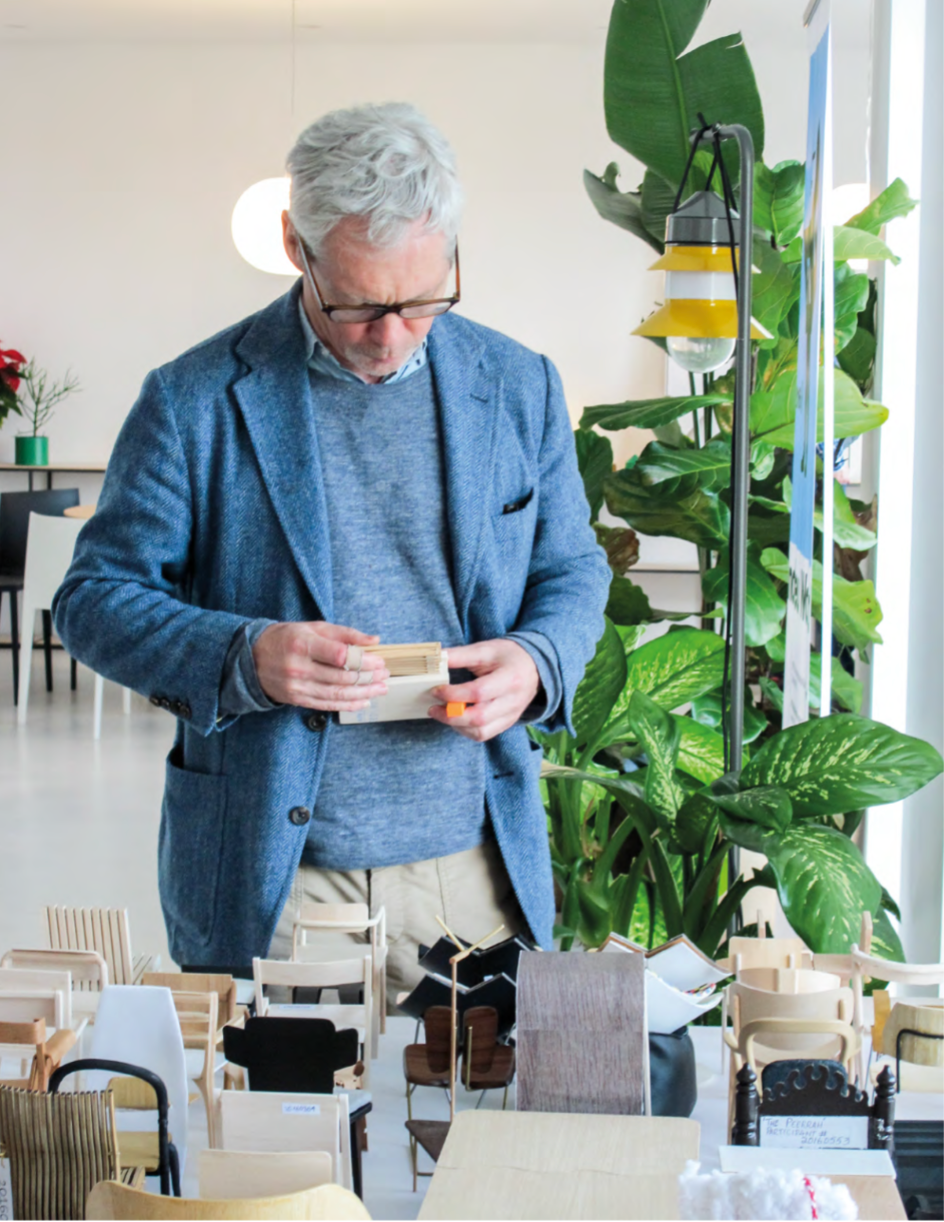
Briefing


Theme: Manufacturing a Better World | Special Edition 70 Years
Since 1955, Andreu World has developed a solid industrial culture based on the manufacture of high-quality seating and tables. Good design, production capacity and a commitment to sustainability are our main hallmarks. On the occasion of our 70th anniversary, this special edition invites participants to present a seat and/or table design that reflects and conforms to the values that have guided our journey over these seven decades: sustainability, innovation, quality (timelessness-industrial culture), and social commitment.
Purpose of the Contest
The seating category includes: chairs, armchairs, stools, benches and sofas.
The tables category includes: meeting and conference tables, coffee tables and side tables.
Materials
The use of sustainable materials is imperative, particularly the following:
- Wood: Andreu World uses 100% responsible wood with FSC® 100% certification from reforested forests with a complete chain of custody from the tree to the final product, guaranteeing minimum environmental impact.
- Innovative Materials: Materials from sustainable sources that promote circularity, eco-design and the ability to be recycled.
- Recycled and Recyclable Materials: Thermopolymers, metals, textiles and other materials for the circular economy.
- Other Materials: Laminates, glass, metals, thermopolymers and natural stone.
- PURE ECO® Thermopolymer: 100% recycled and recyclable plastic.
- BIO® Thermopolymer: Material of natural origin, sustainable and recyclable.
- Circular ONE®: 100% recycled and recyclable textiles.
Environmental assessment criteria
Designs will be evaluated based on their approach to sustainability throughout their life cycle, which includes the following aspects:
- Selection of Materials: Use of renewable, recycled or low-impact materials.
- Manufacturing process: Low-impact processes, waste minimization and energy efficiency.
- Circular Design: Reusability and recyclability of materials, guaranteeing high durability and longevity of the product.
Social and cultural assessment criteria
In addition to functional and sustainable design, proposals that culturally enrich and promote social values will be appreciated, such as:
- Accessibility
- Inclusivity
- Collaboration
Andreu World values
Since 1955, Andreu World has been a pioneer in the design and manufacture of high-quality products, with a strong identity linked to the Mediterranean lifestyle, sustainability and innovation. Our experience in wood, which we cultivate in sustainable forests, and our evolution towards a polytechnic approach, has allowed us to develop products that combine the best of tradition alongside the latest innovation. These values are the basis of all our creations and should be reflected in the design presented.
- Sustainability: Andreu World was the first company to offer an FSC® 100% range and to have Cradle to Cradle® certification in all our collections to ensure they are healthy for both people and the planet. We have achieved the goal of Zero Waste and in our manufacturing processes we only use renewable energy.
- Innovation: We are committed to R&D&i and develop our own sustainable materials, such as 100% recycled plastics and BIO® thermopolymers (of natural origin). We are always looking for examples of good environmental practices, with the aim of minimizing the impact of our manufacturing processes.
- Commitment and Recognition: Andreu World is a B corporation (B Corp) that supports our commitment to people and to global challenges such as the depletion of natural resources, pollution and climate change.
- Globality: With a presence in more than 90 countries and 32 showrooms spread over three continents, Andreu World is a truly global company. Its designs are universal and timeless, reaching the architecture and design community through the 600 people who make up our international team.
This contest is aligned with the principles of the New European Bauhaus, the guidelines of the World Design Organization and the fundamental values of Andreu World.